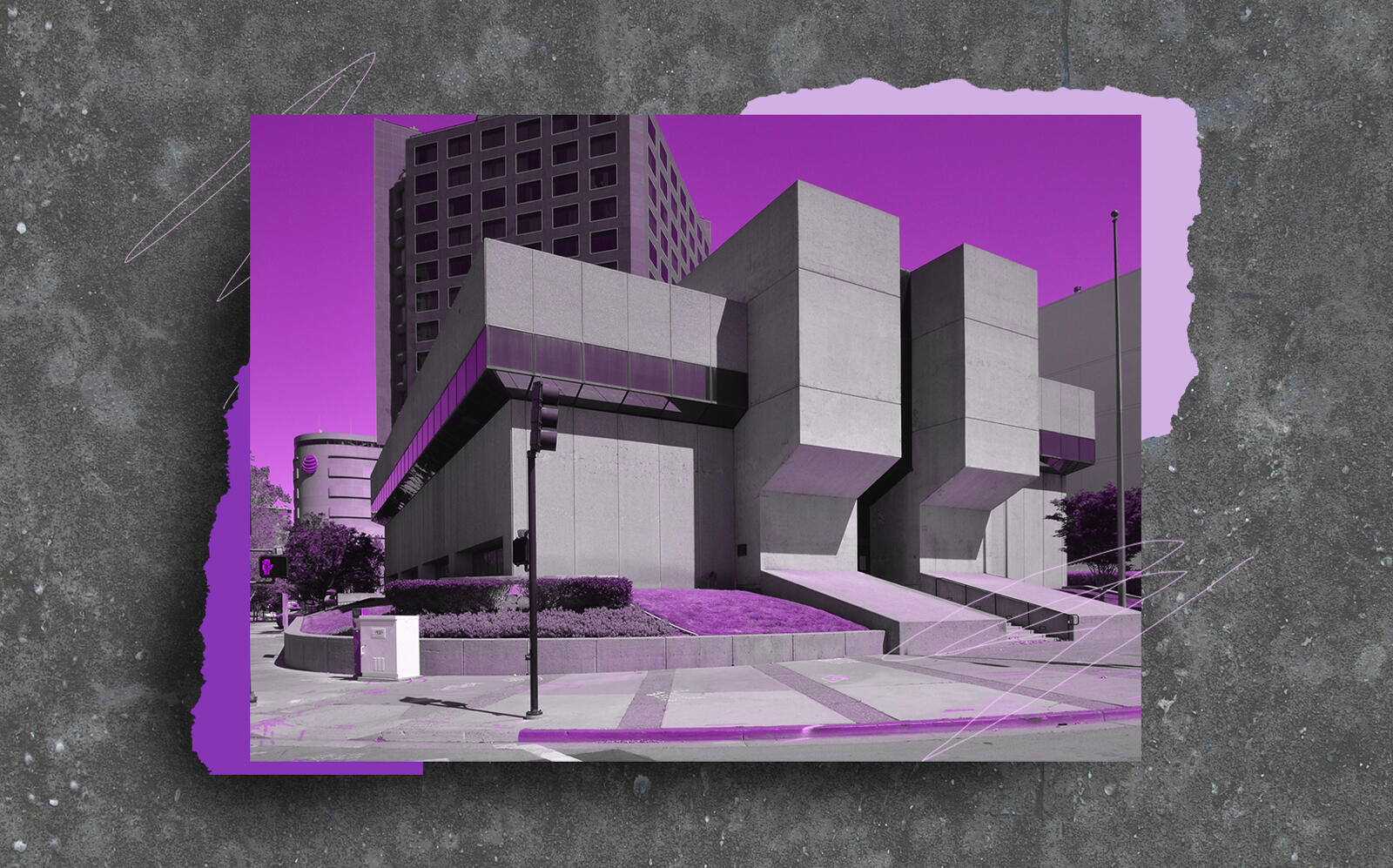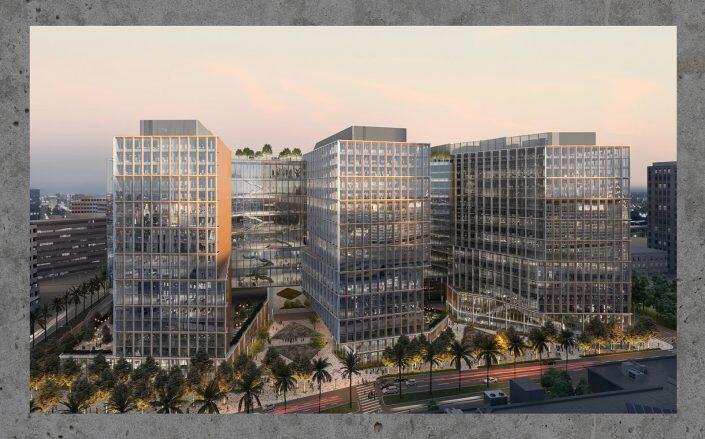Trending
Preservation group vows to continue efforts to save Brutalist building in Downtown San Jose from demolition despite court ruling
A judge issued a tentative order last week that put the building one step closer to being razed as part of a planned office campus redevelopment in the city’s core

An almost windowless block of gray stone in Downtown San Jose that preservationists say was designed by Cesar Pelli is an icon of the Brutalist style of architecture that deserves to be saved, according to a group fighting its demolition.
The 48-year-old structure has been a candidate for the wrecking ball since the San Jose City Council unanimously voted in June 2020 to allow Jay Paul Co. to demolish it and eight other commercial buildings surrounding it, which make up an office and retail complex called CityView Plaza. The developer plans to build an approximately 3.8-million-square-foot office campus in their place.
The Santa Clara County Superior Court issued a tentative order on Sept. 8 that allows the demolition to go forward, subject to a final ruling. The Preservation Action Council of San Jose plans to file a response to the judge’s order by Sept. 29. Failure to do so by that date would result in the judge’s tentative ruling essentially becoming final and would also seal the fate of the 1970s-era Brutalist building at 170 Park Center Plaza. Ben Leech, the group’s executive director, told the Mercury News shortly after the order was issued that the council stood by the merits of its argument.
The Park Center Plaza building “is historically significant due to its association with master architect César Pelli and with a key development period in San Jose,” the council said in a January 2020 letter. “Although just shy of 50 years old, this building stands out and should be a landmark. It is the only example of Pelli’s personal body of work in San Jose.”

Rendering of Jay Paul Co.’s planned office campus that would replace the existing CityView Plaza (Gensler)
The group “is disappointed by Judge (Sunil) Kulkarni’s tentative decision but will continue to advocate for the building’s preservation and adaptive reuse,” Leech said via email earlier this week. “We stand by our argument that the project’s environmental impact report was insufficient and error-strewn in its analysis of preservation alternatives,” Leech said.
Completed in 1973, the building is currently vacant and has previously been occupied by various banks and the county superior court’s family court division. It is not listed on either state or national registries of historic buildings but is eligible for them as well as city landmark status.
The council and other preservationists consider the structure to be an “exceptional” example of the Brutalist architectural style. It’s part of a collection of buildings that made up the “early heart” of San Jose’s financial district, council board president Andre Luthard said in an email. Pelli, the late Argentine-American architect, designed Salesforce Tower in San Francisco and the group of towers that make up Brookfield Place in New York City, among other iconic buildings.
The building at 170 Park Center Plaza has a broad, windowless facade and sharply cut edges that are indicative of Pelli’s other 1970s-era designs, architectural historian and Pelli scholar Daniel Paul told the city in an April 2020 letter. The band of dark, reflective glass wrapped around the structure’s exterior is a telltale sign that it’s one of the architect’s works, Paul wrote in the letter.
However, Lew Wolff, who developed the existing CityView Plaza in the 1960s, 70s and 80s, says that Pelli did not design the building and instead commissioned a “young intern” to do so. The council refutes Wolff’s claim, citing letters from Paul and John Pastier, another Pelli scholar who Leech said was one of the architect’s close friends. Both assert his role in the building’s design. As for Judge Kulkarni, he did not mention the controversy surrounding the identity of the building’s architect in his Sept. 8 order, saying that the court’s job “is not to critique architecture.”
The city issued Level 10 Construction, the general contractor for Jay Paul’s CityView office redevelopment, a permit to demolish the 26,500-square-foot building in July, said Lisa Joiner, deputy director of San Jose’s building division, earlier this week. Level 10 has not applied for permits to raze the other eight commercial structures within the existing block-sized plaza, implying — at least for now — that the building would be the first to come down as part of Jay Paul’s project, assuming the judge’s final ruling on the council’s petition reinforces its tentative, Sept. 8 decision.
In September 2020, the council filed a petition with the Santa Clara County Superior Court asking it to order the city to set aside all approvals for Jay Paul’s planned campus and revise its final supplemental environmental impact report for the project to address the council’s issues with it. The petition alleged that the city’s environmental impact report insufficiently analyzed significant project impacts, mitigations and alternatives, and failed to identify, study or adopt project mitigation measures and alternatives, including the preservation of the Brutalist building at the southwest corner of the existing plaza.
Yet in his Sept. 8 ruling denying the council’s petition, Kulkarni summarized the court’s decision in three main points: The council did not exhaust all remedies for some of its claims; the city sufficiently analyzed the proposed alternatives for the project, including the one that involved preserving the 170 Park Center Plaza structure; and substantial evidence supports the city’s conclusion that incorporating the existing building into Jay Paul’s project is infeasible in light of the development’s objectives and economic and technical considerations.
As for Jay Paul, the San Francisco-based developer is encouraged by the tentative ruling regarding the former bank and family court building, said Matthew Lituchy, the company’s chief investment officer, in an email statement earlier this week. “We look forward to a final ruling, and we will be developing our project schedule at that time,” Lituchy said.




